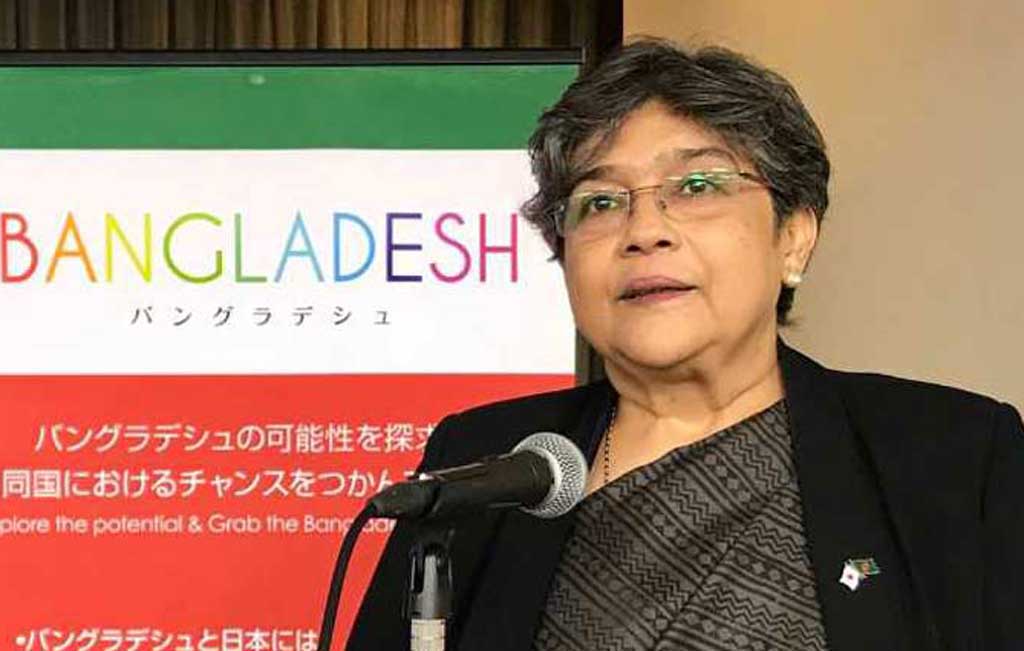NEW DELHI, Jan 24: Bangladesh’s ambassador and its Permanent Representative to the United Nations Rabab Fatima addressed a virtual event concurrently held in New York, Geneva and Vienna on Friday reiterating Bangladesh’s commitment to a nuclear-free world as “complete and unwavering.” She said she was proud to say that Bangladesh was among the first 50 countries to enter this landmark treaty to prohibit nuclear weapons.
To date, the Treaty on the Prohibition of Nuclear Weapons (TPNW) has been signed by 86 countries and ratified by 51 countries and is the first legally binding international agreement to prevent signatory states from developing, testing, producing, stockpiling, stationing, transferring, and using or attempting to use nuclear weapons.
In her address to the commemorative event held by several UN Member States, she recalled the strong call made by Bangabandhu Sheikh Mujibur Rahman, “Father of the Nation” in his historic maiden address to the UN General Assembly in 1974, “to free the world from the scourges of nuclear war.”
In a statement the Ministry of Foreign Affairs Bangladesh added, the treaty came into force on Friday 22 January 2021 after 90 days of submission of Honduras’ instrument of ratification with the UN Secretary-General on 24 October 2020. Bangladesh had signed the treaty on 20, September 2017 and ratified it on 26, September 2019.
Recognising the dehumanising and destructing effects of nuclear weapons, she called upon the States who are yet to participate to do so to attain universal implementation of this Treaty. Echoing Prime Minister Sheikh Hasina’s call for ‘peaceful use of nuclear technology’, She added that Prime Minister has been a prominent global voice and champion for nuclear disarmament, and led attempts to become one of the first signatories of the treaty.
In the meantime, the Ministry of External Affairs (MEA) of India reiterated in a statement that it does not accept the treaty, and that it is not bound by any of the commitments that could result from it. “As far as the Treaty on the Prohibition of Nuclear Weapons (TPNW) is concerned, India did not participate in the negotiations on the TPNW and has consistently made it clear that it will not become a party to the Treaty.” The statement added India continues to attach high priority and remains committed to universal, non-discriminatory and verifiable nuclear disarmament.
India reiterates its commitment to the goal of a world free of nuclear weapons. India believes that this goal can be, accomplished by a step-by-step mechanism characterised by a shared determination and negotiated global and non-discriminatory multilateral framework, as illustrated in the UN General Assembly and the disarmament conference of India’s “Nuclear Disarmament” working paper.
In this respect, India is endorsing the beginning of talks on the comprehensive Nuclear Weapons Convention at the World Conference on Disarmament, the single multilateral disarmament negotiating mechanism functioning based on a consensus and is willing to collaborate with all UN Member States towards the goal of a world free of nuclear weapons.
Besides India, the treaty is not endorsed by any of the eight other countries recognised or assumed to possess nuclear weapons.
(Venkatesh Iyer)

